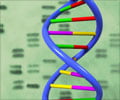Researchers say that the habit of taking turns is more than just good manners and may actually be evolutionary.
Researchers say that the habit of taking turns is more than just good manners and may actually be evolutionary.
According to University of Leicester psychologists, there is an "invisible hand" that guides our actions in this respect."In human groups, turn-taking is usually planned and coordinated with the help of language. For example, people living together often agree to take turns washing up the dishes after meals or taking their children to school," said Professor Andrew Colman.
And it's not just in humans, turn-taking has also evolved in animals, including apes, monkeys, birds, and mating pairs of Antarctic penguins that take turns foraging at sea, while their partners incubate eggs or tend to chicks.
Using evolutionary game theory and computer simulations, Professor Colman and Dr. Lindsay Browning have discovered a simple variation of "tit for tat" (copying in each time period whatever the other individual did in the previous period), which can explain how turn-taking evolved in organisms that pursue their individual self-interests robotically.
"Turn-taking is initiated only after a species has evolved at least two genetically different types that behave differently in initial, uncoordinated interactions with others," said the researchers.
"Then as soon as a pair coordinates by chance, they instinctively begin to play 'tit for tat'. This locks them into mutually beneficial coordinated turn-taking indefinitely. Without genetic diversity, turn-taking cannot evolve in this simple way.
The study will appear in the journal Evolutionary Ecology Research.
RAS
 MEDINDIA
MEDINDIA



 Email
Email





